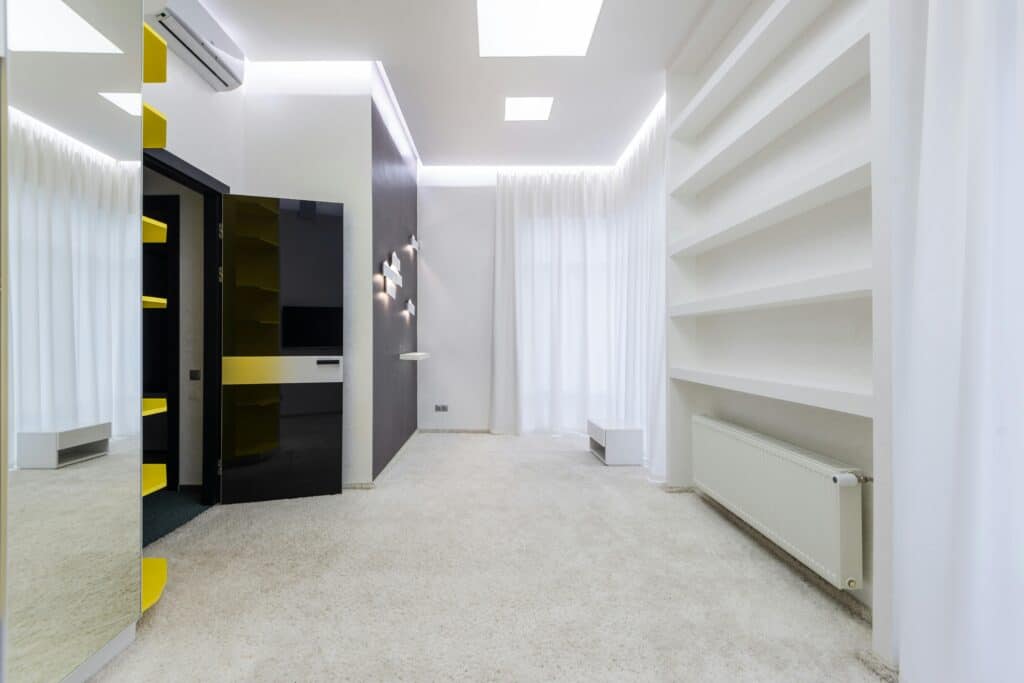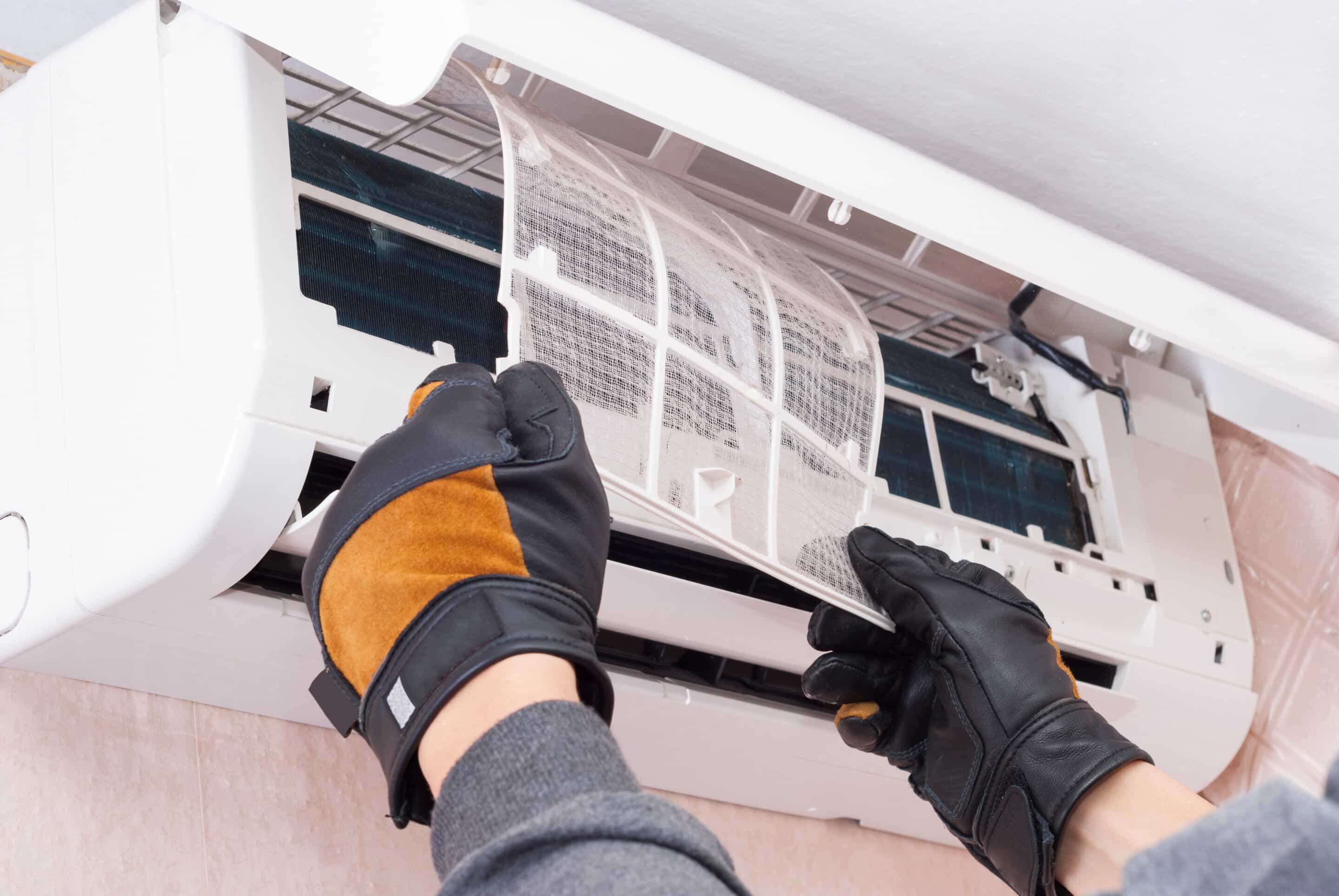- Dirty filters and ductwork can cause HVAC systems to malfunction, leading to inefficiencies and discomfort in your home.
- Strange noises, uneven heating or cooling, and short cycling often require professional diagnosis and repair.
- Regular maintenance and timely intervention by HVAC professionals are needed to keep your system running smoothly and avoid high energy bills.
Your HVAC system keeps you warm in winter and cool in summer, filters your air, and maintains proper humidity levels. It’s a complex system that is important to your home’s comfort. However, like any other electrical system, it may get worn off and cause trouble.
While some issues are best handled by an HVAC repair professional, understanding common problems can help you troubleshoot effectively. Here’s a guide to the most frequent HVAC issues and practical solutions to address them.
1. Dirty Filters
One of the most common issues is a dirty filter, and it’s also the easiest to resolve. A clogged filter blocks airflow, making your HVAC system work harder to maintain the desired temperature. This extra effort can lead to overheating, increased wear and tear, and airflow issues.
Troubleshooting Tips
Replacing the filter is simple and often does not require HVAC repair professionals. First, find the filter in your HVAC system. Consult your unit’s manual to confirm you use the correct type and size. Remove the old filter and install the new one according to the manufacturer’s instructions.
Check and replace the filter every 1-3 months so that your system operates efficiently. If your issue persists or you’re unsure, contacting HVAC professionals can help.
2. Dirty Ductwork
Dirt, dust, and grime in your ductwork can spread throughout your home. This can lower air quality and trigger breathing problems for those with allergies or asthma.
Troubleshooting Tips
Regular cleaning helps maintain good air quality. Use tools like video inspection cameras to identify areas that need attention. If you find the task overwhelming, contacting HVAC repair experts ensures thorough cleaning and improved air quality in your home.
3. Problems with Pilot Light and Ignition
The ignition system in your furnace needs to work correctly for the system to start. Issues with the pilot light, flame sensors, or burners can prevent your furnace from igniting.
Troubleshooting Tips
If your furnace won’t light, you need a professional diagnosis. An HVAC repair expert can safely handle the gas supply and high-voltage electrical components. For reliable and safe repairs, call a trained HVAC professional to address ignition system problems and check that your furnace operates properly.
4. Uneven Heating or Cooling
Thermostat problems can lead to incorrect temperature settings, causing uneven heating or cooling. Poor insulation can also result in temperature differences between rooms. Problems with air distribution, often due to ductwork issues, can also affect how evenly air flows through your home.
Troubleshooting Tips
Check your thermostat settings to confirm that they are accurate. Inspect and upgrade your home’s insulation to maintain consistent temperatures. Adjust dampers in your ductwork to balance airflow. If these steps don’t resolve the issue, consider contacting HVAC professionals to address potential ductwork problems.
5. Strange Noises
Unusual noises from your HVAC system can be alarming and happen for many reasons. Rattling noises may result from loose parts or debris within the system. Grinding noises often signal worn bearings or mechanical problems. Banging noises can occur due to expanding or contracting ducts.
Troubleshooting Tips
Turn off the system and inspect it for loose parts or debris causing rattling. Listen carefully to identify the source of the noise. If you cannot pinpoint the problem, it’s best to consult an expert. They can diagnose and address mechanical issues or other sources of unusual sounds.
6. Blowing Hot Air

If your system blows hot air during the summer, it’s a sign of trouble. This issue can stem from several sources, including dirty air filters, a malfunctioning compressor, or low refrigerant levels. A clogged or dirty air filter that restricts airflow can also be a reason for forcing the unit to blow warmer air.
Troubleshooting Tips
Start by replacing the air filter to see if it resolves the issue. If you hear clicking or rattling noises from the compressor, contact an HVAC professional. They can inspect the compressor and make sure that it operates correctly. A trained HVAC repair technician can handle recharging and address any underlying issues in these cases.
7. Air Handler Malfunctions
The air handler is the part of the HVAC unit that circulates air throughout the system and into your home. Air handler malfunctions can occur due to dirty filters, a faulty motor, or wiring issues.
Troubleshooting Tips
Listen for unusual noises when the system turns on, such as loud banging or screeching. These sounds can indicate a problem with the air handler. Also, watch for a burning smell coming from the ductwork. If you detect any burning odors, contact a professional immediately.
8. Short Cycling
If your air conditioning starts up but shuts off after a few minutes without cooling the room properly, your HVAC system might be short-cycling. This means the unit runs briefly and then turns off before completing its cycle. Short cycling can occur due to several factors, such as electrical issues, dirty air filters, a frozen evaporator coil, leaks, or thermostat problems.
Another possible cause is the wrong size of the system. It can short cycle if the unit is too large or small for your home. For example, a unit that is too big will cool the space too quickly and turn off before the cycle finishes.
Troubleshooting Tips
Start by changing the air filters. Dirty or clogged filters can cause short cycling, and replacing them might solve the issue. Check for leaks in the lines or ice buildup on the evaporator coil. If you find any leaks or ice, contact an HVAC repair professional to address these problems.
9. High Energy Bill
A sudden increase in your electric bill could also be an HVAC problem. While extreme weather can cause your system to run more and increase energy costs, a sharp rise in your bill when conditions are unchanged indicates inefficiency in the system.
Troubleshooting Tips
Regular maintenance is key to keeping your HVAC system running efficiently. Schedule routine checks with HVAC professionals to check that your system is in top condition and to prevent unexpected energy costs.
10. Water Leaks from the Unit
Air conditioners and furnaces create condensation that drains through pipes. These pipes and drains can become clogged, causing water to back up and leak from the unit.
Troubleshooting Tips
Keep the drains clear by pouring bleach down the pipes periodically. This helps prevent clogs and provides proper drainage. Contact an HVAC repair professional if you can’t resolve the issue. They can clear the blockage and prevent further water damage to your system.
Keep your home comfortable year-round with expert HVAC services from us at Quality Heating, Cooling, Plumbing & Electrical Our HVAC professionals can help with everything from repairs to routine maintenance so that your system runs smoothly. Contact us today to book a consultation!




0 Comments